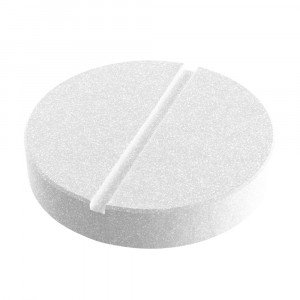 Welcome
Welcome
“May all be happy, may all be healed, may all be at peace and may no one ever suffer."
- A
- B
- C
- D
- E
- F
- G
- H
- I
- J
- K
- L
- M
- N
- O
- P
- Q
- R
- S
- T
- U
- V
- W
- X
- Y
- Z
Nebivolol Hydrochloride - Brands
Nebivolol is a β adrenergic receptor blocking agent. Nebivolol inhibits both β1 and β1 adrenergic receptors. Nebivolol lacks intrinsic sympathomimetic and membrane stabilizing activity at therapeutically relevant concentrations. At clinically relevant doses, Nebivolol does not demonstrate β1-adrenergic receptor blockade activity. Various metabolites, including glucuronides, contribute to beta-blocking activity.
Mode of Action of Nebivolol involved include:
- decreased heart rate
- decreased myocardia contractility
- diminution of tonic sympathetic outflow to the periphery from cerebral vasomotor centers
- suppression of renin activity and
- vasodilation and decreased peripheral vascular resistance
Pharmacokinetics: Nebivolol is metabolized by a number of routes, including glucuronidation and hydroxylation by CYP2D6. The active isomer (d-nebivolol) has an effective half-life of about 12 hours in CYP2D6 extensive metabolizers (most people), and 19 hours in poor metabolizers and exposure to d-nebivolol is substantially increased in poor metabolizers. This has less importance than usual, however, because the metabolites, including the hydroxyl metabolite and glucuronides (the predominant circulating metabolites), contribute to b blocking activity.
Absorption and Distribution: Absorption of Nebivolol is similar to an oral solution. Mean peak plasma nebivolol concentrations occur approximately 1.5 to 4 hours post-dosing in EMs and PMs. Food does not alter the pharmacokinetics of nebivolol. Nebivolol may be administered without regard to meals. The in vitro human plasma protein binding of nebivolol is approximately 98%, mostly to albumin, and is independent of nebivolol concentrations.
Metabolism and Excretion: Nebivolol is predominantly metabolized via direct glucuronidation of parent and to a lesser extent via N-dealkylation and oxidation via cytochrome P450 2D6. After a single oral administration of 14C-nebivolol, 38% of the dose was recovered in urine and 44% in feces for EMs and 67% in urine and 13% in feces for PMs.
Digoxin: Concomitant administration of Nebivolol (10 mg once daily) and digoxin (0.25 mg once daily) for 10 days in 14 healthy adult individuals resulted in no significant changes in the pharmacokinetics of digoxin or nebivolol.
Warfarin: Administration of Nebivolol (10 mg once daily for 10 days) led to no significant changes in the pharmacokinetics of nebivolol or R- or S-warfarin following a single 10 mg dose of warfarin. Similarly, nebivolol has no significant effects on the anticoagulant activity of warfarin, as assessed by Prothrombin time and INR profiles from 0 to 144 hours after a single 10 mg warfarin dose in 12 healthy adult volunteers. The starting dose should be reduced in patients with moderate hepatic impairment. No formal studies have been performed in patients with severe hepatic impairment and nebivolol should be contraindicated for these patients.
To be happy, beautiful, healthy, wealthy, hale and long-lived stay with DM3S.
